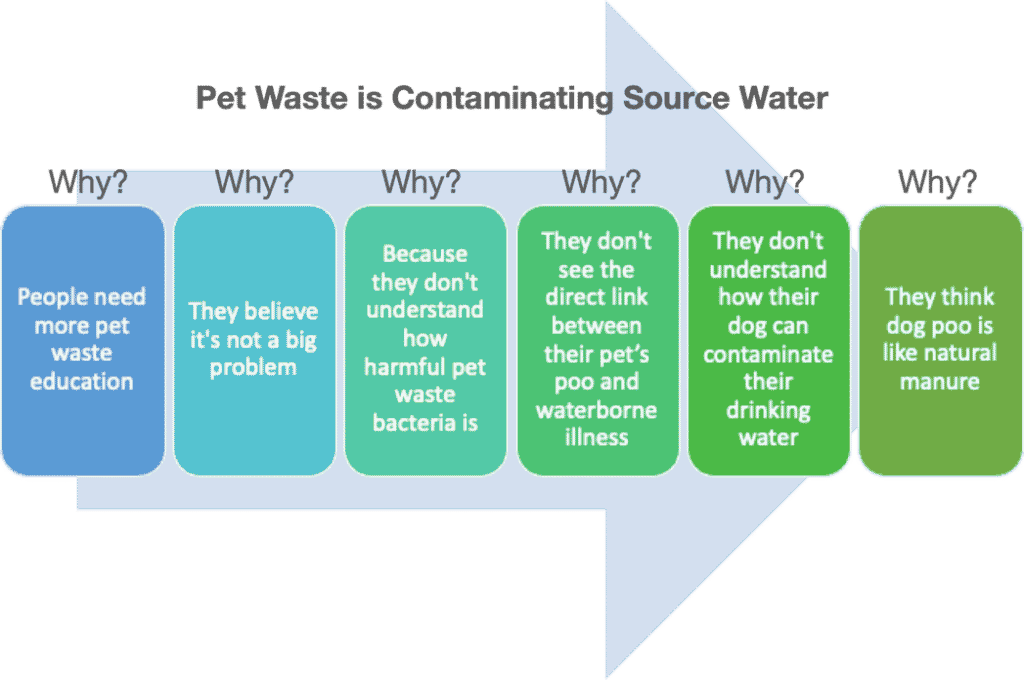Contaminants in a river might result in a simple fix: find the discharge, locate the leak, fix or replace the pipe. However, pollutants in the water can also be an indicator of a much more complex problem. For example, fecal coliform can come from many sources including livestock, pets, wild animals, manure runoff or leaky septic systems. Those responsible for the contamination may or may not be aware of how they are contributing to the problem. To make matters even more difficult, because it is complex, the problem may never be truly fixed. Keeping waste out of source water will always be a “whack-a-mole” challenge as motivations change and new polluters appear. Thus, like other contaminants, high levels of fecal coliform can be just a symptom of a more complex system-wide problem.
Simple problems can have many layers
Pet waste may seem like a simple problem – just get people to pick it up! – but in actuality, there are multiple reasons why pet owners leave their poop on the ground. Root cause analysis (RCA) is one tool to identify the underlying causes of a problem so that the most appropriate solutions can be recognized and implemented. RCA is a systemic process for identifying “root causes” of problems or events and effective approaches for responding to them. RCA is grounded in the basic idea that successful water system management requires more than merely reacting to problems that emerge, but rather finding a way to prevent or mitigate them.
Getting to the root of the problem: A case study in Washington State
In a recent training for local agencies in three Washington State counties, trainers from EFCWest used RCA to identify the root cause of pet waste in source water. Trainers led participants through a “5-Why” process to help them identify potential root causes for the complex issue of pet waste contamination. Through the simple act of asking “why,” stakeholders narrowed their issue down to the true origins, or roots, so they could identify optimal leverage points for positive change. One example of their analysis is pictured below. Participants started with a general lack of education about the hazards of pet waste but as they drilled down, they discovered a potential root cause that is grounded in the public’s belief that dog poop is no more dangerous than natural manure. Thus, pet owners imagine that leaving it on the ground may actually help the environment.
Once this root cause was recognized as a potential leverage point that could change behavior, participants identified the opportunity to create a targeted campaign that focused on dog owner’s misconceptions about the hazardous nature of their pet’s waste. Participants from several counties dealing with the shared issues now have a tool through which they can work collaboratively.
Contact us for a free training!
To learn more about root cause analysis and getting to the bottom of your water/wastewater/stormwater challenges, contact the EFC Network for a free training.


